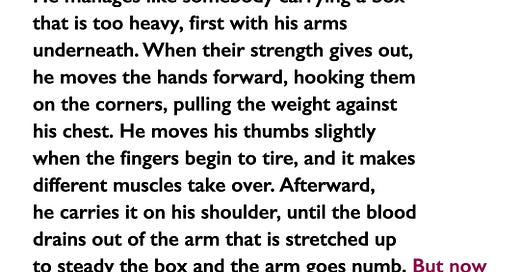“As flies to wanton boys are we to th' gods,
They kill us for their sport.”
- The Duke of Gloucester, Shakespeare’s King Lear
Why is it that the good die young? How to carry the uncomfortable, unwieldy weight of fate’s randomness? What face to show death, that unpredictable spectre, always laughing in the wings, always holding one last trick up their sleeve? It is so subtle. the moment when breath slips out. almost unnoticeable. And everything continues, oblivious to the event of that unsurpassable deep between presence and absence:
In Breughel's Icarus, for instance: how everything turns away
Quite leisurely from the disaster; the ploughman may
Have heard the splash, the forsaken cry,
But for him it was not an important failure; the sun shone
As it had to on the white legs disappearing into the green
Water; and the expensive delicate ship that must have seen
Something amazing, a boy falling out of the sky,
Had somewhere to get to and sailed calmly on.
- From W.H. Auden’s, Musée des Beaux Arts
For a moment there is the memory, that replaces the real, of something that had made a home here. There is darkness, and then gradually one adjusts to it - the silence. The wind passes through an empty corridor. The curtain flutters, and then as we accustom ourselves to the emptiness, the contours of the room begin to become clear - what a person has left behind.
We live in an absurd time where Death plays the trapeze artist, vaulting from newspaper headline to burning pyre, from Twittermulch to hate speech. I write this, of course, in the context of the deaths of the photojournalist Danish Siddiqui, the artists Surekha Sikhri and Goutam Benegal.
I read a post yesterday, by a journalist, expressing grief for these souls, but also for another, who was not so well known. She talked about how there is much written about the big achievers, but it is the unsung, the ones who give and give some more that are the real treasures. This thought filled me up, and I contemplated the ones who quietly go about tending the garden of self, and community. I thought of the arbitrariness of political murders, institutional murders, the corpses that the pandemic has claimed as her own, the cost of human negligence and raw, brutal, unapologetic hate.
I thought of many people that death had claimed, in the last couple of years itself. I thought of their work. I thought of how many of them had been quietly needling away into the unknown. Some, filled with vision, floating above us with the breath of purpose. Others, lost to the doomscroll, written out of the national imaginary, except to the ones closest to them.
There was a project, I remember, that documented each and every COVID death. Just a list. All the names. Even that.
When I thought of their work, their words, and their dreams, I felt light. Not light exactly, but that the heaviness of their passing, was something I could hold as a flickering flame, and continue. I felt my feet firm on the ground, struck momentarily by their defiant single-mindedness, their commitment to what they believed to be true. And I felt their presence again. This is what I have to do, I thought.
One must walk into the darkness with the flickering flame of those who have walked before us. Those who continued to smile, because they saw something else. Maybe that is faith.
Note: The first poem, with a title that is Gilbertlike in its directness, was written by the poet after the death of his wife Michiko Nagomi. The second fragment, ‘Longing’, is from the great Polish Nobel laureate Czesław Miłosz’s 1978 poem Notes.
I share with you also, a short vocal recording of the Rudraveena maestro Ust. Bahauddin Dagar singing in his gurukul in Panvel (He is accompanied by Pt. Sanjay Agle on pakhavaj). It is his birthday today. He is doing vistaar in the Suha bandish “Shubh Mahurat”.
If you are reading this not in your inbox, then subscribe to Poetly to receive regular little missives of poetry and commentary.




